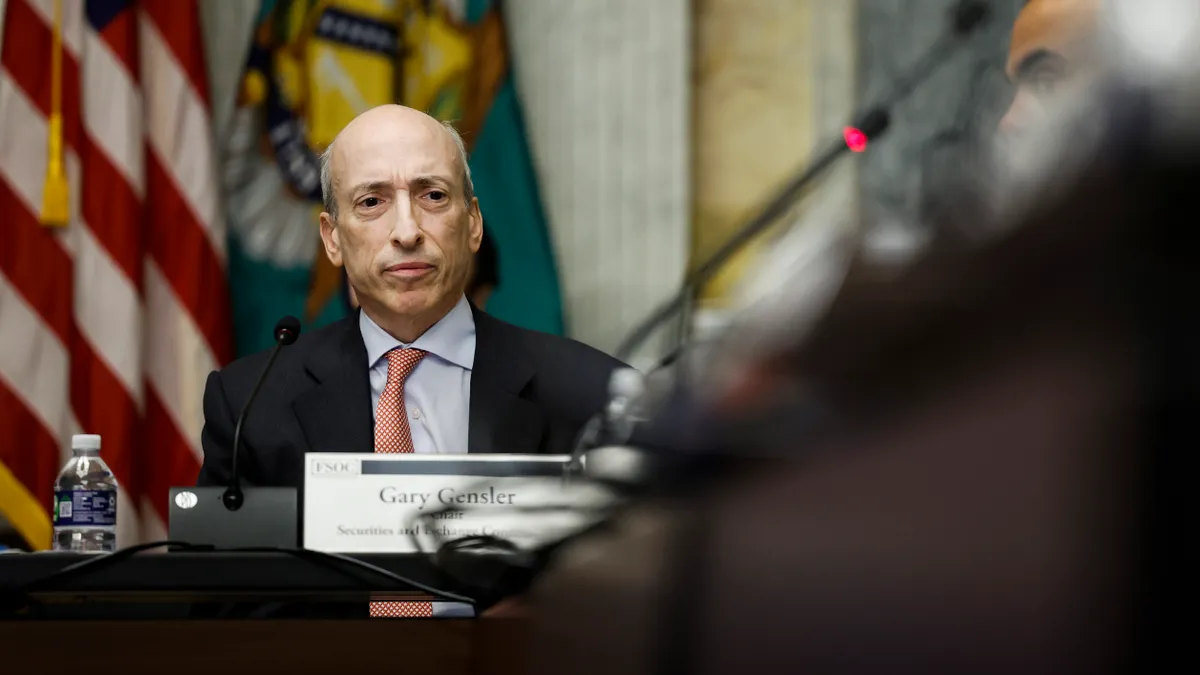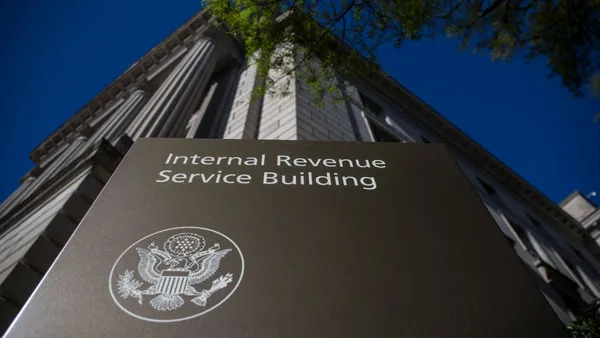Dive Brief:
-
Planned acquisitions by publicly traded special purpose acquisition companies, or SPACs, face tougher disclosure requirements under new rules adopted by the Securities and Exchange Commission.
-
SPACs are typically created for the purpose of forming a merger or acquisition, providing an easier path for a private firm to go public compared with a conventional initial public offering. The new rules, adopted Wednesday on a 3-2 party-line vote, require enhanced disclosures about SPAC sponsor compensation, conflicts of interest, and target companies. The rules are set to become effective within 125 days after publication in the Federal Register.
-
“Just because a company uses an alternative method to go public does not mean that its investors are any less deserving of time-tested investor protections,” SEC Chair Gary Gensler said in a press release.
Dive Insight:
The SPAC IPO market has faced a number of challenges recently, including SEC scrutiny, disappointing performance by SPAC-acquired firms, an uncertain economic outlook, and rising interest rates, according to financial and risk advisory firm Kroll.
Between 2021 and 2022, there was an over 85% reduction in the number of SPAC listings, according to law firm Paul Hastings. The downward trend continued in 2023, with such listings decreasing by nearly an additional two-thirds.
It is “safe to say that the SPAC craze of late 2020 and 2021 has officially died out with only 31 SPAC IPOs pricing during 2023 compared to 613 during 2021,” the report said.
Gensler, a Democrat, said in his Wednesday statement that the commission’s regulatory action will “help ensure that the rules for SPACs are substantially aligned with those of traditional IPOs, enhancing investor protection through three areas: disclosure, use of projections, and issuer obligations.”
In some cases, for example, the rules require the target company to sign a registration statement filed by a SPAC. This would make the target company a “co-registrant” and assume responsibility for disclosures in that registration statement, according to the release.
In a dissenting statement, Republican commissioner Mark Uyeda said the rules will impose “rigorous and expansive requirements from nearly every corner of the federal securities laws on SPACs, its IPOs, and any related de-SPAC transaction.”
“This approach may have the effect of discouraging people from forming SPACs or private companies from engaging in a de-SPAC transaction as a way of becoming a reporting company,” he said. “Over the long term, this may result in fewer opportunities for companies to access our public markets and fewer opportunities for people to make investments.”
The rules were also opposed by Republican Commissioner Hester Peirce. Gensler and fellow Democrats Caroline Crenshaw and Jaime Lizárraga voted “yes.”
The SEC first proposed its SPAC rules in March 2022. At the time, some observers predicted the rules would significantly increase the regulatory burden on SPAC deal participants.
Wednesday’s move comes in the wake of ramped up SEC enforcement activity targeting SPACs.
Last year, for example, the commission settled fraud charges against Digital World Acquisition Corporation, a SPAC planning to merge with Trump Media & Technology Group, an online media venture created by former President Donald Trump.
The SEC alleged that Digital World violated the antifraud provisions of the federal securities laws by making material misrepresentations in forms filed with the SEC as part of the company’s initial public offering and proposed merger with Trump Media. As part of the settlement, Digital World agreed to a cease-and-desist order and to pay an $18 million civil penalty in the event it closes a merger transaction.
In another 2023 enforcement action, the SEC settled with New York audit firm Marcum LLP over alleged violations in connection with audit work for hundreds of SPAC clients. Marcum agreed to pay a $10 million civil penalty.














